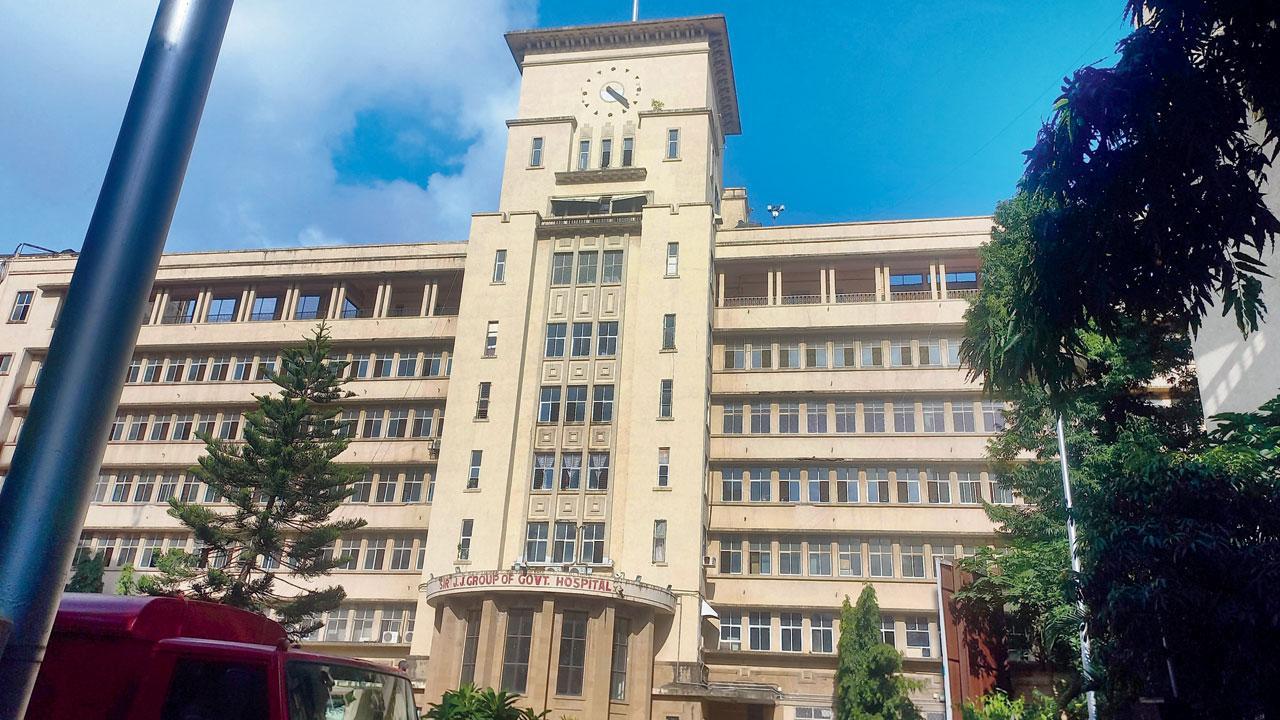Public health centres and these hospitals located outside Mumbai have allegedly not been performing autopsies, and asking Grant Medical College and JJ hospital to do them

More than 70 claimed and unclaimed bodies were referred this year to the Grant Medical College and JJ Group of hospitals for autopsy from primary health centres and rural hospitals. File pic
The non-availability of forensic experts cited as an excuse by public health centres and rural hospitals located outside Mumbai for not performing autopsies, and asking Grant Medical College and JJ Hospital to do them, has irked forensic surgeons at these institutions.
ADVERTISEMENT
Forensic surgeons claimed that the cases referred to them are not complicated or sensitive in nature, and that the autopsies could have been done at referral hospitals. In one case the body was referred citing decomposition. This, according to forensic experts and citizen forums, is against the government resolution of 2013 and also in violation of the national human rights advisory.
According to sources, “Since the beginning of the year, more than 70 claimed and unclaimed bodies were referred to the Department of Forensic Medicine and Toxicology, Grant Medical College and JJ Group of hospitals for autopsy, from primary health centres, rural hospitals, civil hospitals in Thane, Ulhasnagar, Badlapur, Alibag, etc.”
On three consecutive days October 6, October 7 (two bodies from Central Hospital, Ulhasnagar) and October 8 (case of a 21-year-old woman from Rural hospital, Badlapur) bodies were referred to the JJ Group of hospitals.
Also Read: MahaRERA rules consider continuity of MOFA: Experts
“All the doctors in the primary health centres, rural hospitals and even civil hospitals have studied forensic medicine and toxicology as part of their MBBS curriculum. Moreover, the hospital administration manual clearly mandates that every medical officer in these set ups must compulsorily undergo three months training of medico legal autopsies, so that they can independently handle cases or accompany a body to the nearest bigger centre or medical college, where an autopsy can be performed. But this is seldom adhered to,” pointed out a forensic surgeon.
“A primary health centre has one or two medical officers, while a rural hospital has three to four and a class one medical superintendent. A civil hospital has 30 medical officers and various class one specialised surgeons, other than the Resident Medical Officers and the civil surgeon. But still cases are being referred for months to JJ. This is unfair,” said the surgeon.
Money problems
The process of transporting the body costs good money, which has to be paid by the kin of the deceased, and in case of an unidentified body, the police have to arrange for transportation.
“The doctors conducting the autopsy are to be present during the trial at courts outside Mumbai, and for recording evidence under Section 45 (expert opinion) of the Indian Evidence Act,” another expert pointed.
Satyajit Burman, founder of Ambernath Citizen Forum (ACF), said, “We have been receiving numerous complaints from patients’ relatives about the high-handed attitude of doctors at Central Hospital, Ulhasnagar. ACF has made numerous complaints to the health authorities, but our plea has fallen on deaf ears.”
Work for cops
Senior Inspector Rajendra Kote of Ambernath police station said, “In two of the cases registered with us in September and October, the bodies were three to four days old and showed signs of decomposition. As Central Hospital, Ulhasnagar is the main hospital for medico legal cases, the bodies were sent there for autopsy, but doctors said they do not have forensic experts and referred the cases to JJ hospital.”
Indrajit Khandekar, professor of Forensic Medicine, MGIMS, Sevagram, said, “If for some documented justifiable reasons a doctor feels that post-mortem is required under the observation of forensic experts, then the body should be transported to a nearby expert centre, and unnecessary transfer to the farthest centre should be avoided.”
“Why should bodies from outside Mumbai be sent to JJ Hospital? The fact is that neither the police nor their superiors have gone through the 2013 government resolution, which clearly states that only in sensitive cases, wherein a law and order problem needs to be avoided, the body can be referred to a bigger centre or to a medical college, or else autopsy can be done in the primary health centres, or rural hospital, or civil hospital,” said Dr SM Patil, retired police surgeon and medico legal advisor to the state of Maharashtra. Attempts to contact Commissioner (public health) Tukaram Mundhe did not yield result.
What the 2013 GR states
>> No body should be referred to the district hospital/government medical college hospital if the reason is decomposition. In such cases the on duty doctor should consult a senior and conduct the postmortem. If at all any such cases have to be referred for some highly important technical reason, it should be done only with the permission of civil surgeon/medical superintendent along with authorised requisition of investigating police
>> In decomposed and partly/fully skeletonized bodies preliminary basic postmortem should be done at the same centre and required samples preserved there only. After this, the body, skeleton, bones should be sent to the professor and head of Anatomy Department of the nearest Government Medical College Hospital with requisition of police
 Subscribe today by clicking the link and stay updated with the latest news!" Click here!
Subscribe today by clicking the link and stay updated with the latest news!" Click here!







